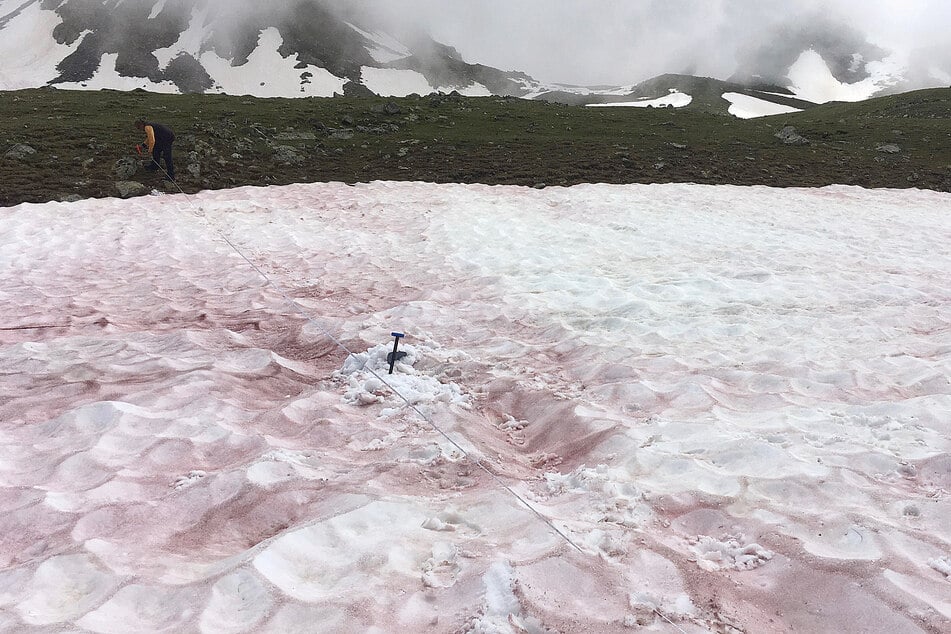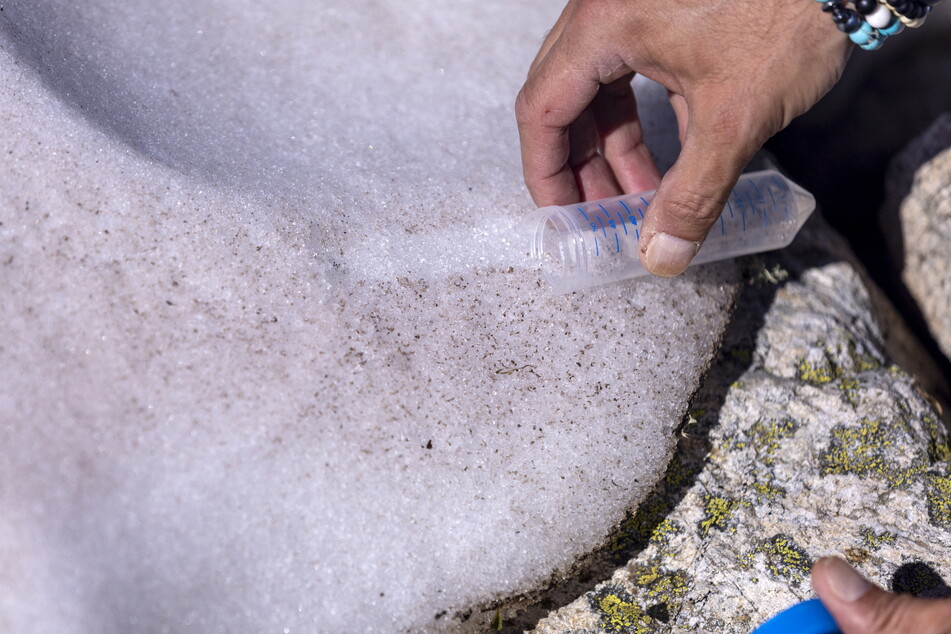"Snow blood" mystery raises red flag on climate change
France - The impacts of climate change aren't fully known yet, but researchers in France have made a link between some mysterious "bloody snow" in the Alps and the climate crisis.

There's blood in the water – or in this case, the mountains. And it's certainly raising a red flag for the state of the environment.
A team from the French Scientific Research National Center have been worried about a type of growing algae called "snow blood," as it's on the rise and possibly creating a new warming feedback loop, per reports.
The algae, which takes on a reddish-pink color from building up natural "sunscreen," is a warning sign pointing to higher levels of carbon dioxide in our atmosphere.
And that tracks, since NASA reported at the beginning of June that the amount of CO2 in the air is higher than it has been in over four million years.
The algae growth is basically the canary in the coal mine – and a stark red sign that all is not well with the earth.
Snow blood algae: How does it work?

When the "snow blood" algae grows in snowy conditions, it flips the snow's shielding effect on its head.
Normally, snow is like a mirror, and helps to bounce energy from the sun back into space. But algae growth, or patches of dark rock and dirt, do the exact opposite – and cause the snow to melt. The algae's red color – to protect itself from the sun – only worsens the problem.
Without snow's shielding effects, lands that used to help keep the planet's warming down – like snow caps and mountains – are turning into hot spots, absorbing more heat than before and releasing it back into our atmosphere.
It's created huge problems if the snow just doesn't stick around, causing a new melting trend in places like the European Alps.
The rise of red algae in snowfields is quickly turning into a feedback loop and only one of many impacts of the worsening climate crisis, showing that cutting greenhouse gas emissions is more important than ever.
Cover photo: REUTERS

